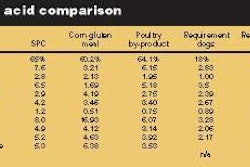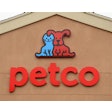Leonard Green & Partners (LG&P) is at it again. Petco Animal Supplies, Inc., the United States' No. 2 pet supply specialty retailer, was recently purchased by Leonard Green & Partners and the Texas Pacific Group (TPG) for approximately US$1.8 billion, or US$29 a share this summerwith the final closing to be completed in the fourth quarter of 2006.
The buyout
The financially motivated transaction could not have come at a better time. With Petco's net sales in fiscal 2005 at US$2 billion (an increase of 10.2% from fiscal 2004) and overall net earnings of US$75.2 million in 2005, it's no wonder the summer buyout was an attractive proposition. Particularly at a time when the market continues to move to the upside, driven partly by the premium segmentwhich accounts for approximately 38% of petfood sales. Petco being a major player in the segment was undoubtedly a significant reason for the acquisition and further diversification of the LG&P portfolio.
Petco, headquartered in San Diego, California, USA, operates more than 817 stores in 49 states and the District of Columbia. The company offers more than 10,000 pet-related products, including premium cat and dog foods (i.e., Nutro, Hill's Pet Nutrition), collars, leashes, grooming products, toys and animal habitats and services.
This is not the first time LG&P has purchased Petco. LG&P is a Los Angeles, California, USA-based private equity firm specializing in structuring and sponsoring management buyouts, going-private transactions and recapitalizations of established public and private companies. It purchased Petco for US$600 million, or US$22 a share, in 2000; it then took the company public 24 months later.
Will LG&P and TPG repeat their previous strategy? While there is speculation that the group may take Petco public in a few years (as the firm has intimate knowledge of Petco's operations from their previous ownership), an even less probable but possible scenario is a PetSmart acquisition.
According to Mintel reports, Petco and PetSmart increased their combined market share from 19% to 23% between 1998 and 2003. Mass merchandisers like Wal-Mart have been successful in attracting pet owners with a rapidly rising number of stores, as well as low-priced food and supplies.
Earnings pressures
Petco has announced an expansion strategy in which 30 new stores are projected to be built in the third quarter of fiscal 2006. To date, 40 new stores have opened, and the program calls for approximately 90 new stores by year's end. In the midst of high fuel prices, one has to wonder if this aggressive strategy is appropriate at this time, given the inverse relationship between gas prices and earnings among retailers in this sector. Petco and PetSmart experienced lower earnings in 2005, which was driven by reduced levels of disposable income among consumers, influencing their purchasing behaviors.
Petco also recently announced it's improving customer service and initiating more effective market communication campaigns, costs that continue to be significant; thus a positive ROI would probably not be realized in the immediate short term. In the long run, the biggest threat may not be from the cost of gas or consumer buying behavior due to economic pressures, but from the competitioni.e., Wal-Mart leveraging its private label brands and everyday low pricing strategy.
















